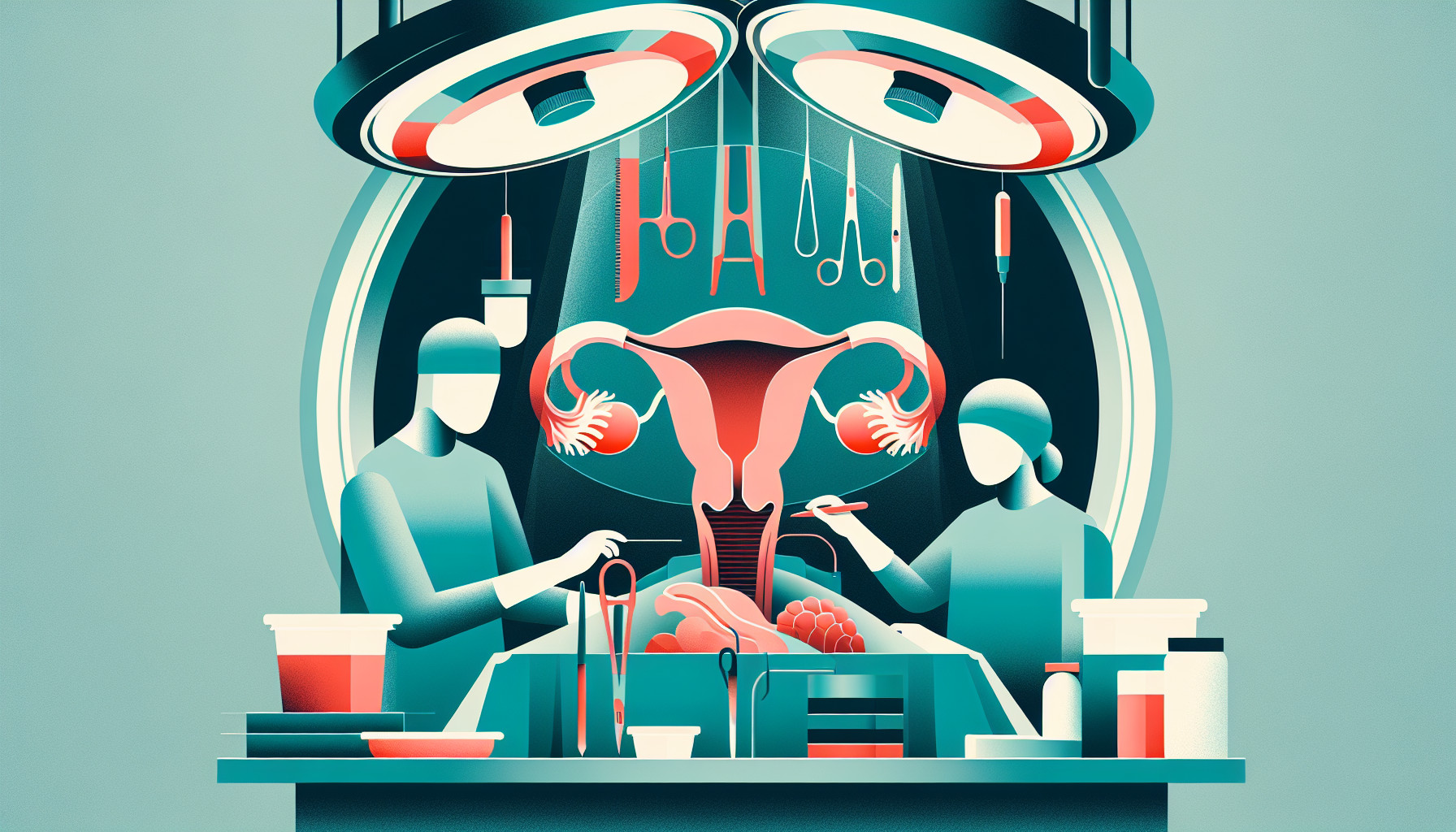Our Summary
This research paper delves into the impact of preventive ovary and fallopian tube removal surgery (also called risk-reducing salpingo-oophorectomy or RRSO) on women who are at a high risk of developing ovarian cancer due to genetic syndromes like BRCA1 and BRCA2 and Lynch syndrome. These women are usually advised to go through this surgery at ages 35 to 40, after they’ve had children.
The paper finds that while RRSO can significantly reduce the risk of ovarian cancer, it can also seriously affect a woman’s mental health and sexual life. Commonly reported symptoms include vaginal dryness and decreased sexual desire. Women who haven’t reached menopause at the time of surgery might experience an even greater drop in sexual function. Hormone therapy can somewhat help with these symptoms, but it doesn’t completely solve the problem. Other treatments, like testosterone patches and flibanserin, exist, but there’s not enough safety data for these treatments.
Despite these drawbacks, most women who have had the surgery are satisfied with their decision to do so. The paper suggests that before the surgery, women should be counseled about its potential sexual effects and the limitations of hormone therapy in managing any post-surgery symptoms.
FAQs
- What is risk-reducing salpingo-oophorectomy (RRSO) and who is it recommended for?
- What are the potential side effects of RRSO and how can they be managed?
- Are women generally satisfied with their decision to undergo RRSO, despite its potential drawbacks?
Doctor’s Tip
One helpful tip a doctor might give to a patient considering salpingo-oophorectomy is to have an open and honest discussion with their healthcare provider about their concerns and expectations regarding the surgery. It’s important for patients to understand the potential impact on their mental health and sexual function, as well as the available treatment options for managing any symptoms that may arise after the surgery. Additionally, patients should be encouraged to seek support from a mental health professional or a support group if needed, to help them cope with any emotional or psychological challenges they may face post-surgery.
Suitable For
Women who have a family history of ovarian cancer or genetic mutations that increase their risk of developing ovarian cancer are typically recommended salpingo-oophorectomy. These genetic mutations can include BRCA1 and BRCA2 mutations, as well as Lynch syndrome. Women who are at a high risk of developing ovarian cancer due to these genetic factors are often advised to undergo preventive surgery to remove their ovaries and fallopian tubes in order to reduce their risk of developing the disease.
Timeline
Before salpingo-oophorectomy:
- Women at high risk of developing ovarian cancer due to genetic syndromes like BRCA1 and BRCA2 and Lynch syndrome are advised to undergo risk-reducing salpingo-oophorectomy at ages 35 to 40, after they’ve had children.
- Counseling is provided to the patient regarding the surgery and its potential risks and benefits.
- The procedure involves the removal of the ovaries and fallopian tubes to reduce the risk of ovarian cancer.
After salpingo-oophorectomy:
- Women may experience symptoms such as vaginal dryness and decreased sexual desire.
- Hormone therapy can help with these symptoms, but it may not completely alleviate them.
- Women who haven’t reached menopause at the time of surgery may experience a greater drop in sexual function.
- Other treatments such as testosterone patches and flibanserin exist, but there is limited safety data available.
- Despite these drawbacks, most women who have undergone the surgery are satisfied with their decision.
- Counseling about potential sexual effects and limitations of hormone therapy should be provided to women before the surgery.
What to Ask Your Doctor
Some questions a patient should ask their doctor about salpingo-oophorectomy include:
What are the specific risks and benefits of undergoing a salpingo-oophorectomy for me, given my personal medical history and genetic risk factors?
How will the surgery impact my future risk of developing ovarian cancer and other related health issues?
What are the potential short-term and long-term side effects of the surgery, particularly in terms of sexual function and mental health?
What are my options for managing any post-surgery symptoms, such as vaginal dryness and decreased sexual desire?
Are there any alternative treatments or therapies that may be effective in addressing these symptoms if they arise after the surgery?
How soon after the surgery can I expect to resume normal activities, including sexual activity?
Will I need to undergo any additional screening or follow-up care after the surgery to monitor for any potential complications or side effects?
How will the surgery impact my overall hormonal balance and menopausal symptoms, and what options are available for managing these changes?
What is the success rate of hormone therapy in alleviating symptoms related to the surgery, and are there any potential risks or side effects associated with this treatment?
Can you provide me with resources or referrals to mental health professionals or support groups that specialize in helping women navigate the emotional and psychological impact of undergoing a salpingo-oophorectomy?
Reference
Authors: Tucker PE, Cohen PA. Journal: Int J Gynecol Cancer. 2017 May;27(4):847-852. doi: 10.1097/IGC.0000000000000943. PMID: 28333842
